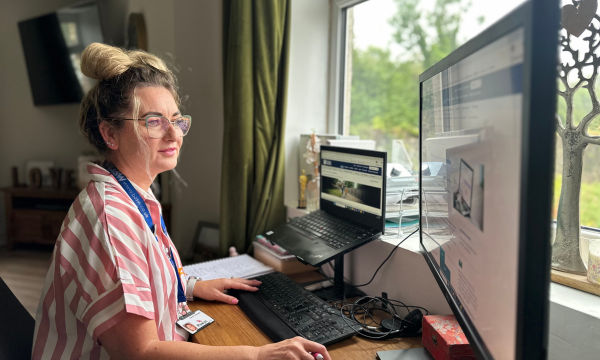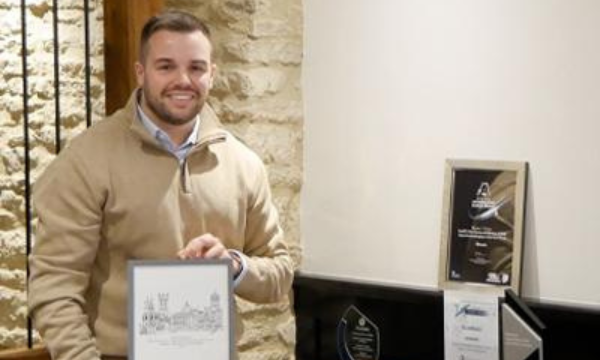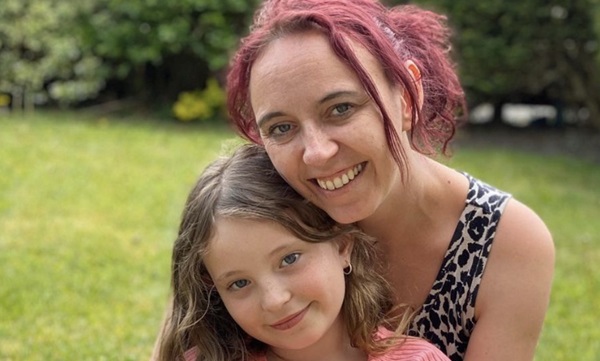
A Powys-based social worker who balanced full-time work, single parenthood and the pandemic has risen to lead a hospital social work team – thanks to the flexible study model of The Open University in Wales, which is helping to fill urgent workforce gaps across the country.
Rachel Townsend, 42, from Ystalyfera, completed her BA (Hons) in Social Work with The Open University in 2020. She began her career in a residential care home at the age of 18 and worked her way up through local authority roles while raising two young boys.
Her degree was funded through the ‘Grow Our Own’ scheme run by Powys County Council, a scheme designed to develop homegrown social work professionals without pulling them away from their communities or jobs.
Wales is facing a shortage of qualified social workers, with only around 200 new graduates entering the profession each year, well below the estimated 350 needed annually to meet demand.
Research from Social Care Wales shows that Wales has the lowest ratio of social workers per 10,000 people in the UK, and many councils are increasingly reliant on expensive agency staff to fill gaps in essential services. This workforce shortage has a knock-on effect across the health and social work system, contributing to delays in hospital discharges and placing growing pressure on public services.
Against this backdrop, The Open University’s approach, enabling learners to gain qualifications flexibly and remotely, has become a crucial part of the solution, it says. Its part-time, distance-learning model supports adult learners who might otherwise be unable to access higher education, including parents, carers, and those already employed in social work. For Rachel, the flexibility of the Open University was life-changing.
“I knew I wanted to progress, but there was no way I could give up work and study full time,” she said. “The Open University gave me the space to learn, to grow, and to apply for roles that once felt out of reach. Without that flexibility, I couldn’t have studied while raising two children and working full time.”
Throughout her degree, Rachel completed work placements and gained hands-on experience that helped her transition smoothly into professional practice. After qualifying during the Covid-19 pandemic, she was appointed as a Continuing Healthcare Practitioner in Powys, where she was responsible for establishing a new team, developing policy, and leading service delivery. Rachel currently works as an interim Team Manager within a hospital discharge social work team supporting patients to be discharged safely with the appropriate care package.
She said:
“My course wasn’t just about theory; it helped me build confidence. It was about the application of social work and building on knowledge I already had gained within my previous role. Social work empowers me to support individuals in making their own choices and living the lives they want, I take pride in helping keep people safe.”
Rachel is now helping others follow the same path. She mentored Tanya, a fellow Open University student, through her third year of study and continues to advocate for more flexible, supported routes into the profession. Her story is a testament to the power of accessible education to transform not just individual lives, but public services.
The Open University's professional programmes in Social Work, Nursing, and Teaching are already making a measurable impact on the ground, it said.. The Open University’s BA (Hons) Social Work programme in Wales has produced 248 qualified graduates since 2021/22 – with annual graduate numbers rising from 30 in 2021/22 to 97 in 2024/25, representing an increase of over 220%.
“We’re committed to playing a vital role in tackling the social work shortage in Wales by making professional qualifications accessible to people already working in care, as well as in other professions” said Michelle Matheron, Assistant Director, External Affairs at The Open University in Wales.
“By supporting learners in every part of Wales, especially in rural areas, and working closely with local authorities and health boards, we’re helping to build a sustainable pipeline of skilled professionals and a public service workforce that is rooted in, and committed to, the communities it serves.”







